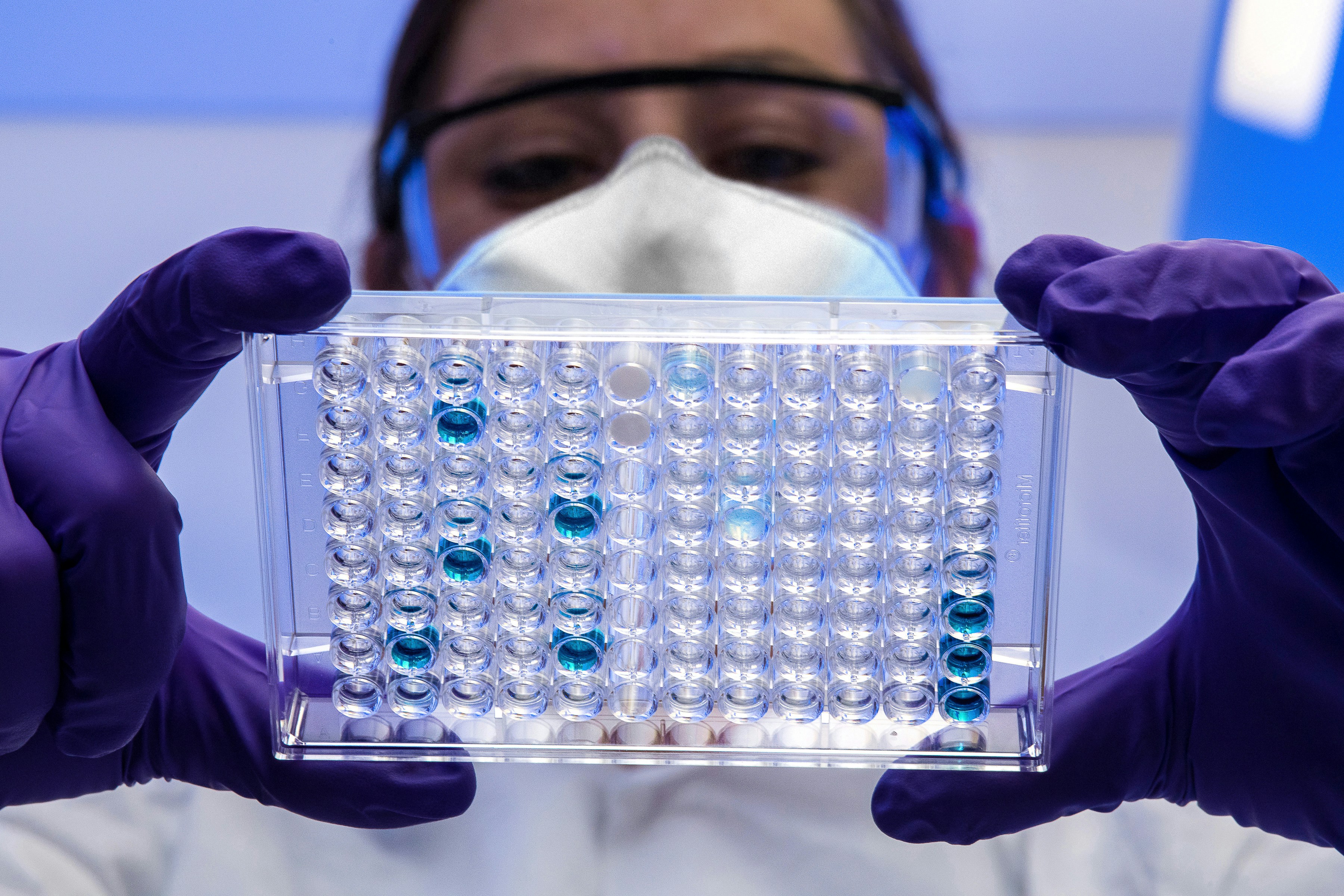New treatments offer hope to mothers with hyperemesis gravidarum

Photo Credit CDC on Unsplash
Hyperemesis gravidarum – not just morning sickness
Among the many arguments in the abortion debate is that of health challenges resulting from pregnancy. Pro-abortion publications (such as ProPublica) will even spread misinformation on maternal health and abortion laws in order to argue in favor of abortion legalization. Doing so has resulted in many people rug sweeping genuine causes of maternal mortality such as medical negligence.
Of course, problematic pregnancies can and do exist even when there are no health concerns, with or without abortion as an “option.” No matter where a woman lives, she may have to endure a hard pregnancy for a baby she wants or planned for. In the case of more serious complications, one is that of hyperemesis gravidarum (HG) – otherwise called “extreme morning sickness.” Unlike usual morning sickness, HG is debilitating and filled with serious risks for both mother and baby.
You would think such a high-risk complication would be better researched, but it isn’t. Mothers are often traumatized not just by the disease itself but also from lack of support and understanding from others. Referring to the HER Foundation:
“Patients who are very severe are typically hospitalized, representing the 1-3% of pregnancies estimated as having HG. However, very little research is done on the impact of hyperemesis as differentiated from morning sickness; thus the impact of HG is likely greatly underestimated. One study by Zhang, et al found a 10.8% incidence of severe vomiting, and another study found 16% of pregnant patients using antiemetics.
There are hundreds, if not thousands, of additional people who terminate out of desperation when given inadequate treatment despite debilitating symptoms. Hyperemesis (HG) is not really a rare disorder.”
Current treatment options and their limitations
Currently, HG is treated with a variety of medications that may cause fetal malformations. It is debatable how much risk is actually involved, and new strains of medication are proving to be less likely to cause these problems. Regardless, as the HER Foundation explains, “The known adverse outcomes resulting from prenatal malnutrition often outweighs the small possible risks of medications.”
There are practical survival strategies often employed to help mothers through this time. HG symptoms can be managed (not treated) with nutritional enemas, sipping and eating very small amounts of drink and food soon after vomiting (to avoid clinical starvation), and calming down abdominal muscle spasms with a hot salt compress. The use of medical marijuana for HG management is also possible; this has been discussed by an HG mother on SPL before. However, marijuana may induce nausea with long term use, and legality varies between states. More research is needed to make more prominent conclusions.
Even with these options for care, HG remains difficult to manage safely (if the care provider takes it seriously at all) and can take a great toll on the mother’s physical and mental health. These care options bring some comfort and decrease the risks related to malnutrition; without them, the mother would either die with her baby or experience other major complications. With that said, even proper care according to the current model of treatment is not enough for most women to move on with normal life. Some may find an improvement of symptoms over the course of the pregnancy, but many do not find any relief at all until birth.
Given the severity that HG brings to perinatal health, it is crucial for pro-life advocates to not only be aware of the condition and support women suffering, but to also know of viable, effective treatment options. Doing so may help prevent the hundreds or thousands of women who abort their child out of desperation from this terrible experience. And of course, for her health and that of her child, it is crucial that they get the medical support they need to not just survive, but thrive.
Thankfully, one HG mother herself has found the answer to a better targeted treatment, and is leading the research into improving its application.
One scientist’s journey of loss and research
Dr. Marlena Fejzo is a Harvard-educated medical researcher, and sadly lost her child to HG in 1999. She shares her experience (and subsequent research journey on HG) with ParentData:
“My symptoms were so severe that I could not eat, drink, or even move without violently vomiting. I was confined to lying completely still and endured weeks of relentless suffering. Despite being put on seven different medications and later a feeding tube, it was too late to save my pregnancy. The physical and emotional toll was worsened by my doctor’s dismissive claim that I was “exaggerating for attention.
Once I recovered, I was determined to take action. Armed with a PhD in medical science from Harvard, where I had previously identified key genes associated with uterine fibroids, I decided to dedicate my career to understanding and combating HG.”
Eventually, Fezjo partnered with 23andMe to see if women who had HG carried genetic tells for the condition. This resulted in a breakthrough study in 2018. Results showed that two genes were related to the formation of HG: GDF15 (related to nausea and vomiting) and IGFBP7 (a gene also shared in octopi, which triggers fasting until death after laying their clutch of eggs).
The genetic culprit behind HG and what it means
Once GDF15 was confirmed as the greatest risk factor, further research was done and found how fetal genetics also played a role. Given that not all HG mothers have the condition in every pregnancy, DNA samples were taken from their children to see if there was a fetal connection. As Fezjo explains in the ParentData article:
“[W]e sequenced the children of the mothers who had the rare GDF15 variant and found, surprisingly, that the mothers were less likely to have HG in pregnancies in which their child inherited the mutation. We then…discovered that the GDF15-predisposing variants are associated with lower blood levels of the nausea and vomiting hormone prior to pregnancy, resulting in increased sensitivity to the rapid rise of the hormone, which is made by the placenta in huge amounts during pregnancy.” (emphasis added)
In simpler terms: exposure to the GDF15 variants can desensitize mothers to the hormone that induces severe vomiting and nausea. This is why mothers with pregnancies of a fetus who also carried the gene may not develop HG. Another approach based on this information is the development of blockers. Some pharmaceutical companies are developing medicine to block GDF15 signaling without the need for “exposure therapy.” This research is slow-going due to general hesitancy to perform studies on pregnant women.
The new line of HG treatment
Now knowing the genetic components of HG, Fezjo and her partners have put their knowledge to good use. This includes the opening of two specialized clinics: Harmonia Healthcare Center in Red Bank, NJ, and the HG and Morning Sickness Clinic in Birmingham, AL. By utilizing “exposure therapy” of the “vomiting” hormone induced by GDF15, these clinics are able to help treat HG and gather more data for improved application. They are also studying whether use of Metformin before pregnancy may reduce HG symptoms.
Beyond the clinics, Fezjo works closely with HER Foundation to spread awareness, share options on treatment, referrals to HG-friendly doctors, and give emotional support to women suffering from HG.
Life-affirming medicine saves babies and mothers from unwanted abortion
As previously mentioned, HG can lead to desperate mothers aborting when they lack adequate support. This leaves countless women suffering from the deaths of wanted, loved children, and also adds to the trauma that HG causes. Perhaps this is yet another middle ground issue that both pro-life and pro-choice advocates can work together on in order to protect women in pregnancy.
One comment on ParentData’s Fezjo article says it all:
“The HER foundation and the HG-knowledgeable doctor I found through them are the reason I have my daughter today. I had a termination scheduled for the same day I was able to have my first appointment with this doctor. He understood how sick I was when my regular OB/GYN had told me to sip ginger ale and eat crackers.”
If you appreciate our work and would like to help, one of the most effective ways to do so is to become a monthly donor. You can also give a one time donation here or volunteer with us here.


